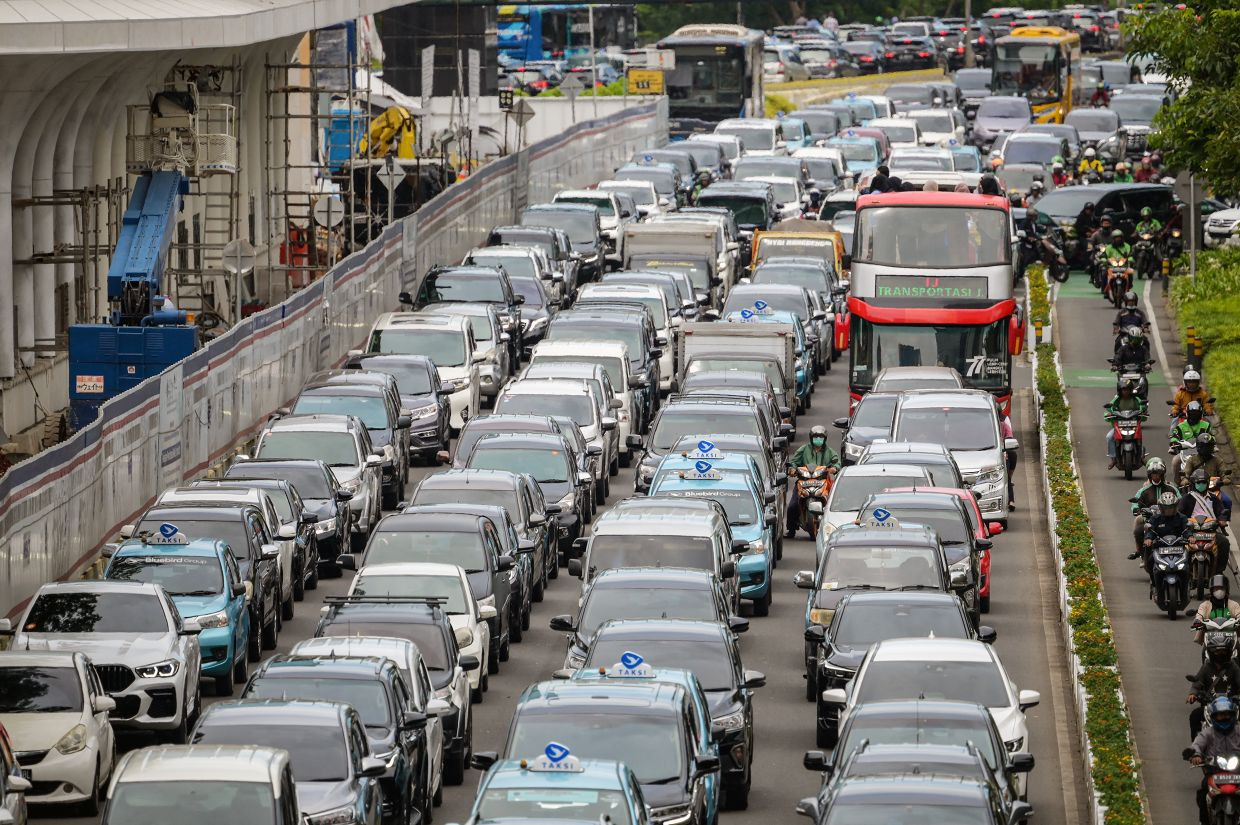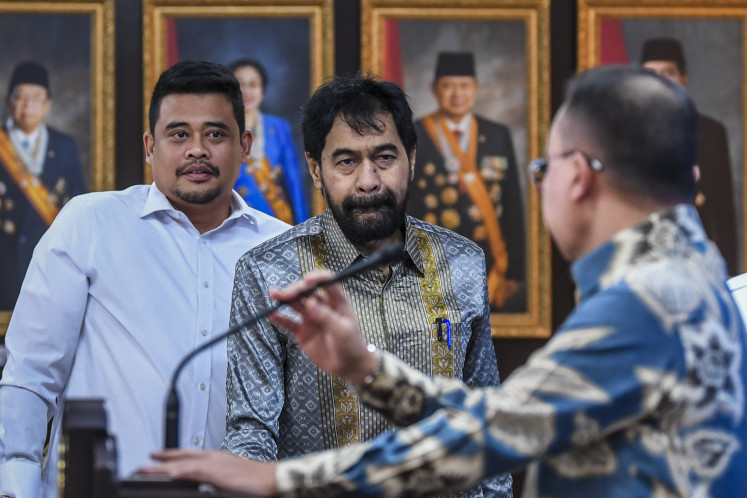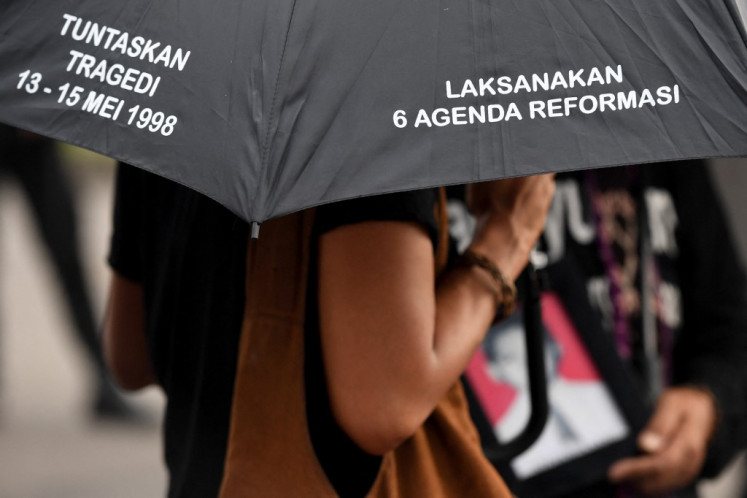Popular Reads
Top Results
Can't find what you're looking for?
View all search resultsPopular Reads
Top Results
Can't find what you're looking for?
View all search resultsJakarta traffic in 2022 still below pre-COVID level
Jakartans spend an average of 22 minutes and 40 seconds to travel 10 kilometers.
Change text size
Gift Premium Articles
to Anyone

J
akarta once again saw a significant increase in its traffic congestion last year, as Indonesia gradually moved on from the COVID-19 outbreak and pre-pandemic bustle returned to the city, the 2022 TomTom Traffic Index revealed.
According to the recently released report, Jakartans spend an average of 22 minutes and 40 seconds to travel 10 kilometers. The figure rose by 2 minutes and 50 seconds compared to last year, the highest increase among 389 major cities surveyed.
The new travel time put Jakarta at 29th among the most-congested cities in the world, moving up 17 places from last year's rankings, when the city placed 46th.
Jakarta has seen a continuous improvement in its traffic woes in the past few years, largely due to decrease in mobility amid pandemic restrictions.
In 2020, the first year of the COVID-19 pandemic, the city ranked 31st among the most-congested cities, which was a massive improvement from 2019, when the capital placed 10th on the Tom-Tom traffic index.
Despite the worsening congestion, however, Jakarta had still improved its ranking compared to pre-pandemic times. Before 2020, the capital was consistently ranked among the top-10 most-congested cities in the world.
City officials have made various efforts to curb the returning congestion, including by reinforcing odd-even license-plate policy on 25 major thoroughfares in Jakarta.
Introduced in 2016, the odd-even policy bars vehicles from certain roads on certain days based on the terminal digit of their license plates and the day of the month. If both are odd or both are even, the vehicle may use the road; if one is odd and one is even, the vehicle may not use the road.
Last year, city authorities said they had been considering imposing staggered working hours to further alleviate congestion during rush hours, but the plan was scrapped recently following protests from employers and companies.
Transportation experts said improving the public transportation system in Jakarta and its satellite cities was key to solving the city's perennial traffic problems.
Experts also suggested the city maintained some level of remote working, as about 80 percent of the city’s 3.2 million commuters had been office workers and many used private vehicles to get to their workplaces.
Some transportation analysts also advised the Jakarta administration to introduce tougher policies to deter people from using private vehicles, such as implementing electronic road pricing and increasing parking fees in downtown areas.
The Jakarta administration has been seeking to implement an electronic road pricing policy since 2006, but progress stalled, reportedly because of paperwork and financing issues. It was also planning to significantly increase both on-street and off-street parking fees, but no changes have yet been made.








